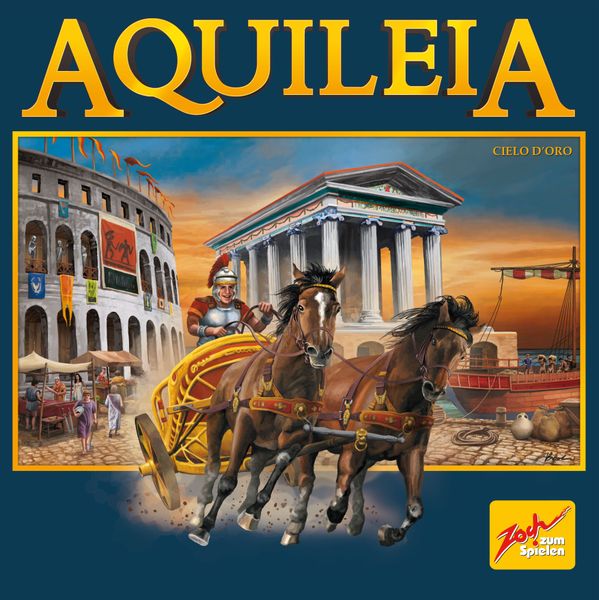Aquileia (2011) Board Game
Aquileia is a board game that was first released in in 2011. It is set in ancient times and focuses on city building, economic strategies, and dice rolling mechanics. The game was designed by Victor Boden and Geoffrey Cramm, and it is published by 999 Games and Zoch Verlag. With a playing time of around 90 minutes, Aquileia is recommended for players aged 12 and above.
Game Components of Aquileia
How To Setup Aquileia
To set up the game, each player chooses their set of henchmen and places them within reach. The game board is laid out with its various locations, and the necessary cards and coins are distributed. The market is stocked with weapon, slave, and horse cards. Each player starts with a basic amount of coins. The game is ready to begin once all components are organized and the players understand their roles as wealthy Aquileian patricians.
Gameplay Mechanics and Game Objective
Mechanics
Game Objective
The objective is to accumulate the most victory points by engaging in activities such as building villas, participating in gladiatorial combat and horse racing, and acquiring valuable laurel cards. The game ends after six rounds, and the player with the most victory points wins.
Player Experience
Playing Aquileia involves strategic planning and resource management. Players must balance their henchmen placements to maximize their chances in different activities. The unique coin system adds a layer of complexity, forcing players to plan carefully to meet the specific coin requirements for various actions. The game offers a variety of activities, from the excitement of the arena and stadium to the strategic building in the forum, ensuring that each round is engaging and full of interesting choices.
Pros
Cons
Personal Thoughts on Aquileia
Aquileia is perfect for fans of worker placement games who are looking for a challenging and varied experience. It is ideal for players who enjoy strategic planning, resource management, and a bit of luck. The game’s historical setting and detailed mechanics make it appealing to those interested in ancient Roman culture and complex board games. However, due to its complexity and length, it may not be the best choice for casual gamers or those new to the genre.
We are supported by our audience. When you purchase through links on our site, we may earn an affiliate commission, at no extra cost for you. Learn more.

